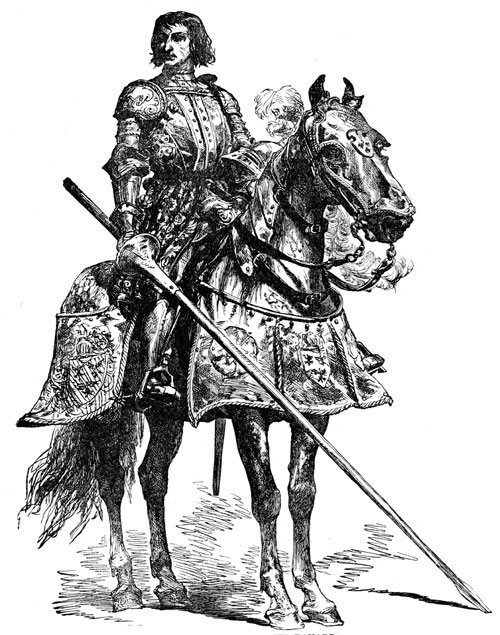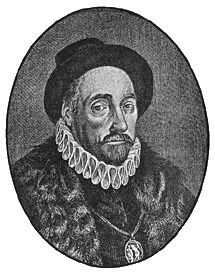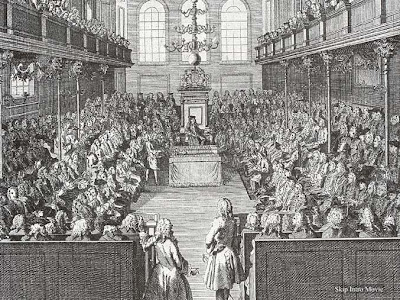
The Burgundian Wars
Part Two: The War of Artois
The War of the Golden Fleece (known in France as the War of Artois after the provinces in which many major battles occurred and so called in the Lowlands for the Mercenary Organization which fought most of the battles of the war) was the first war between France and Burgundy since the early 1400s and the first battle between France and Burgundy in the Burgundian Wars, a series of conflicts which led to Burgundy's destruction. But it wasn't the first time that French and Burgundian Valois had come to blows--Burgundy was formed in part as a rebellion of the junior branch of the Valois against the senior branch, and ever since her separation from France she'd been struggling to keep that independence. Legally, half of Burgundy's territories lay within France and half within the jurisdiction of the Holy Roman Emperor. It required multiple ingenious coups to keep Burgundy independent every time her Duke died, and in 1480 her coups stopped coming.

Burgundy was the center of all things baroque in 1482, its intellectual and political order representing a dying Medievalism and her armies representing the last hurrah of the heavily armored, mounted knight
Philip the Bold was a genius on the level of Francois I and Louis XI, and even moreso than Louis XI he was connected to the most prestigious figures in the period. Unlike France, which had positioned herself strongly with the heterodox Humanist faction of European cultural politics, Burgundy was one of the last remaining paragons of chivalry and traditional Medieval values. Moreso than even rural Spain or 'uncivilized' Lithuania, Burgundy's political elite was almost entirely comprised of a landed military nobility, even though the Netherlands was one of the few truly urban areas of Europe at the time. All of Burgundy's upper governmental and military officers were members of one Order of Knights or another, and the Inquisition had dominated the Dutch intellectual scene since the 1460s.
But this whole society collapsed during the Burgundian Wars. Much of Burgundy's foreign templar elite lay under French ground by 1490, many of her castles lay in waste, and her land was hopelessly fragmented. But it was a near miss: it is easy to imagine a situation where Burgundy won and France was inherited.
The End of the Franco-Aragonese War
The war against France was, to put it kindly, a massive embarrassment for the court at Valencia. Although the Armee du Sud controlled all of Catalonia by the Summer of 1488 and was travelling far south of Barcelona, the force which was truly destroying most of Aragon's army were the 4,000 man Huntsmen of Foix. Count Gascard's skirmishers had transitioned through 1486 and 1487 from a thorn in the side of Aragon to a legendarily elite group of men whose very mention evoked fear. King Miquel characteristically decided to attack both problems at once, bypassing the Armee du Sud and marching on Toulouse through Foix and the Pyrenees, trying to both destroy the elite light-infantry force which was making it impossible to cross into France and attacking the base of operations of France's largest army in the theatre.
The Army of Aragon, directly under the command of Miquel I and his military advisers, numbered 20,500 men, 4,000 knights, and 10 newly bought siege cannons from Venice. The siege cannons were gargantuan, cumbersome things: each required 10 oxen pulling it, not to mention a reasonably large road. This is where the decision to move through the Pyrenees became difficult: the mountain paths were nearly unusable for the cannons, and the Army of Aragon spent as much time repaving the road they were on as they did marching. By the time Miquel's army crossed the mountains, his army was underfed, overtired, and stretched to the breaking point.
This played directly into the hands of the Huntsmen. On the first night in a month that the Army of Aragon made camp, the Huntsmen came out of the woods with bow, arrow, and arquebus, and routed the far larger enemy, who retreated into the woods where they were picked off battalion by battalion. And although the army reconvened south of the Pyrenees, they were immediately destroyed by the Armee du Sud.

The Battle of Bearn effectively ended the Franco-Aragonese War
The Battle of Bearn had several consequences--it emasculated and embarassed the Aragonese Army, which by 1487 was the last thing holding Aragon together. It gained huge prestige for France, and more specifically for Foix's army--the Battle of Bearn led to a federalization of the French Army, allowing for different regional styles of governance. But, most powerfully, it led to the death of King Miquel, who was lost in the paths of the Pyrenees and never found again. With that, the Kingdom of Castille laid their claim on the Kingdom of Aragon and inherited it, creating the Kingdom of Spain, which remained a great power for the next several centuries. Although the Spanish Hapsburgs did not realize any French claim to Italian land, they did gift the Aragonese province of Rousillion to the County of Foix, in gratitude to the deftness of Foixard soldiers.

WELP. Note that I gave Foix Rousillion because even though Spain's inheritence 'stopped' my war it would be ridiculous for me to control all of Naples and a good chunk of mainland Aragon and then have that disappear.
Also I'm going to cut this post in half because I know that this post is going to get lost somehow if I don't post it now.
Last edited:
























